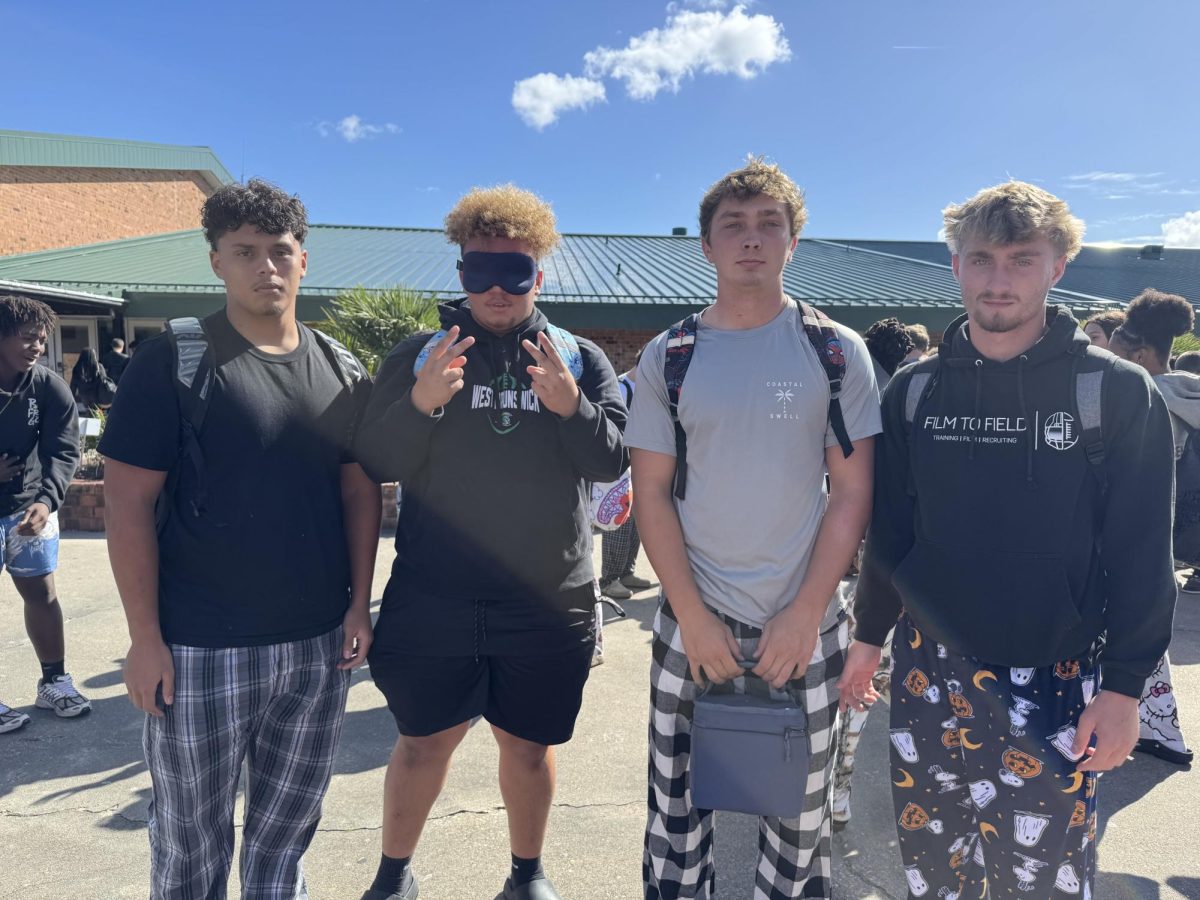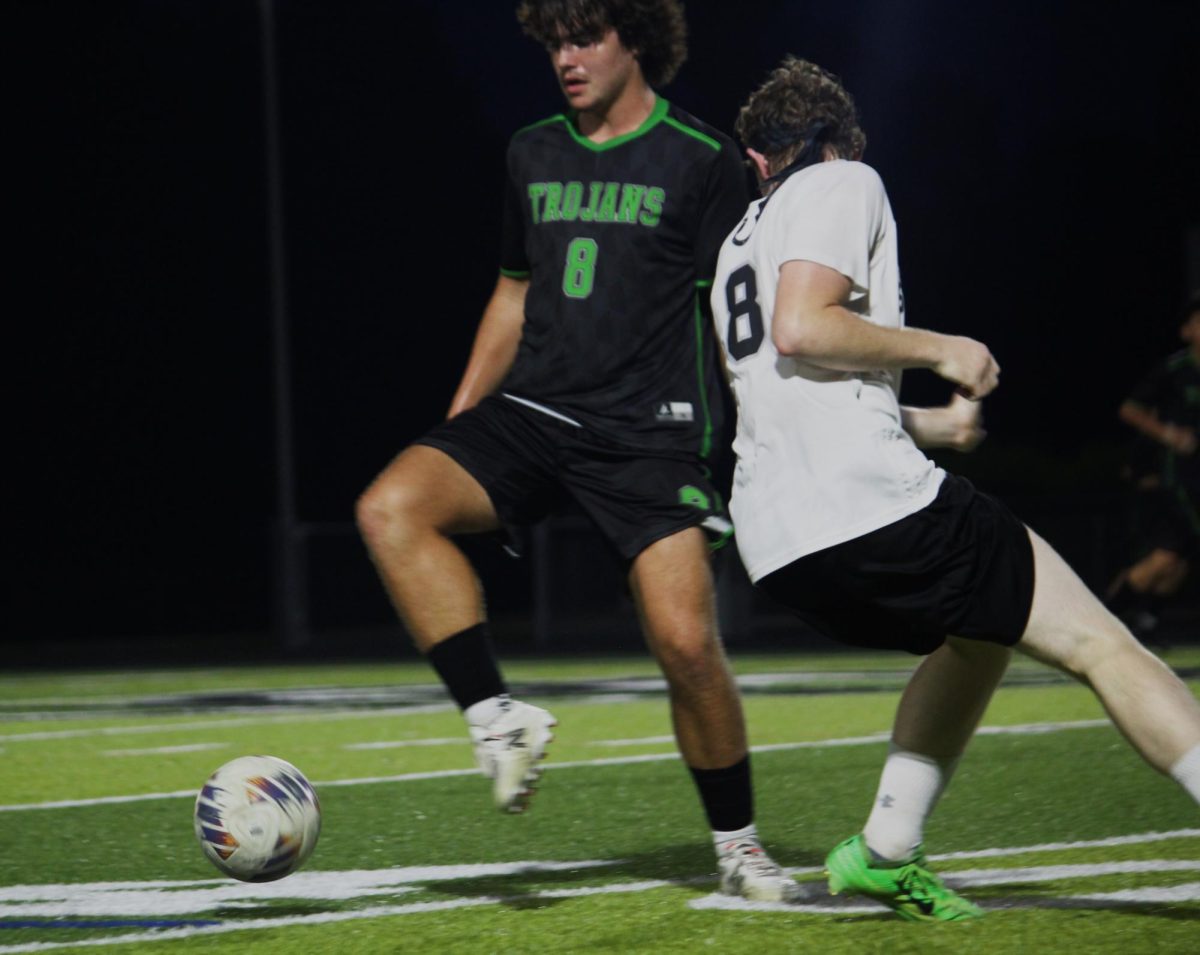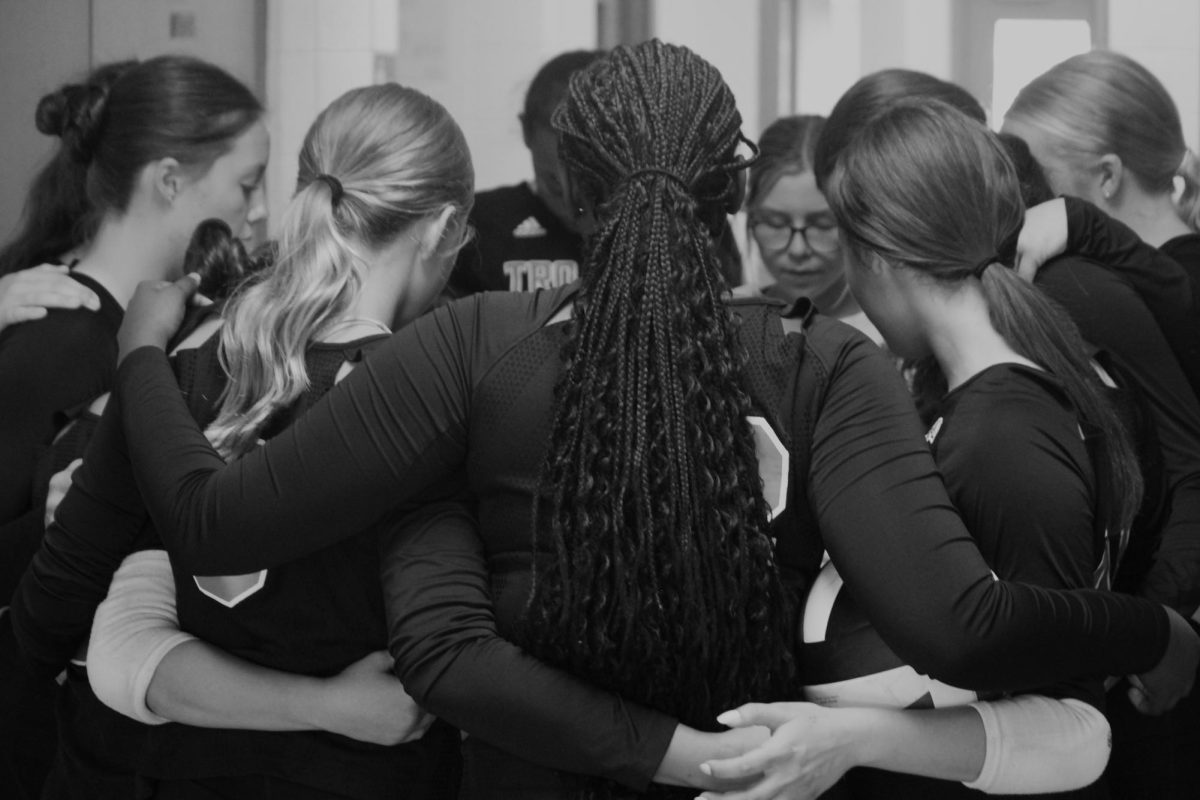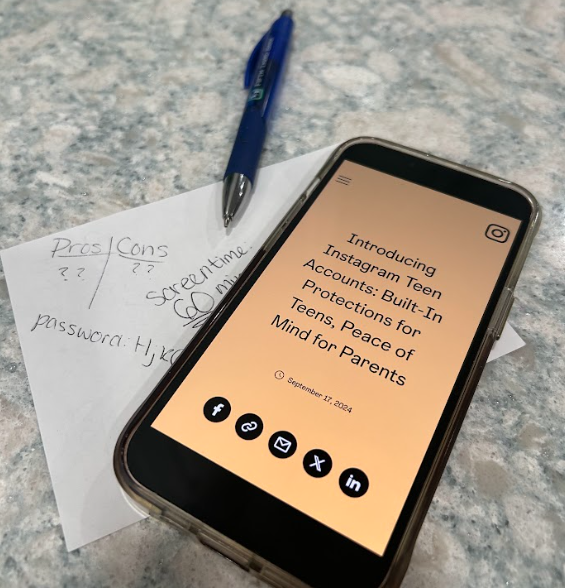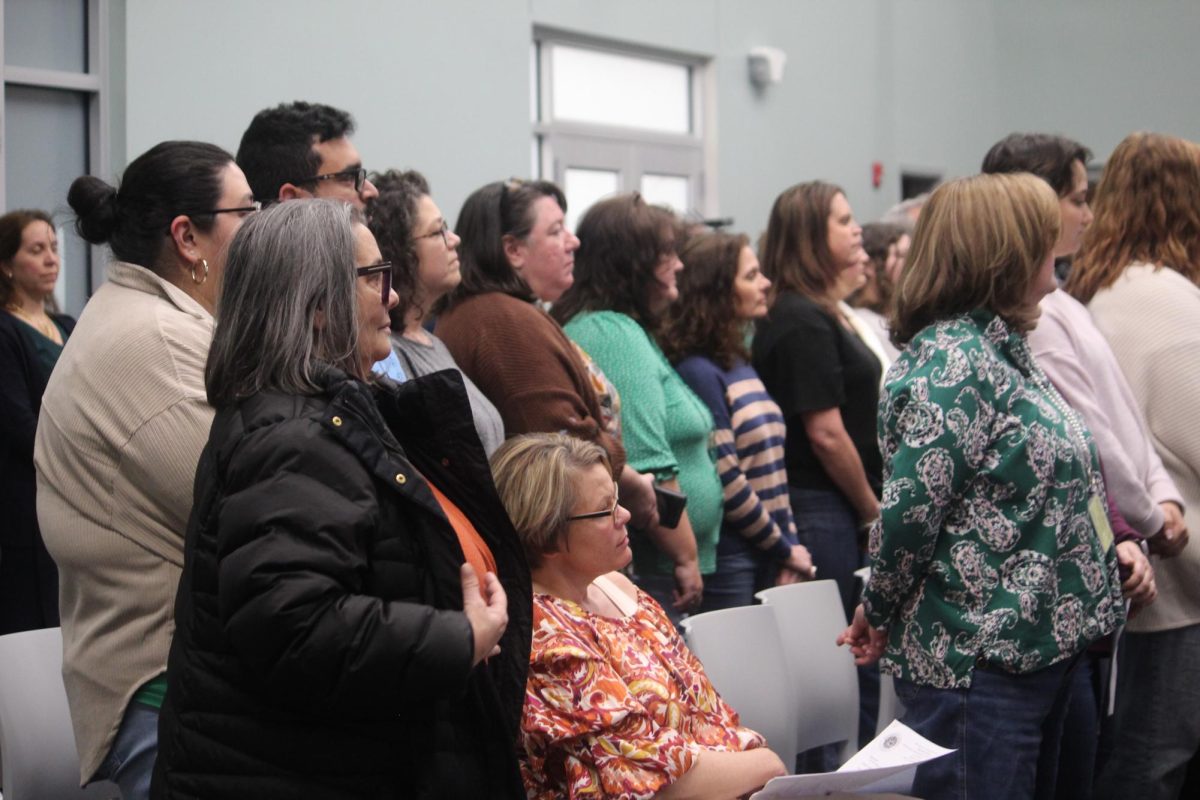On September 17th, Instagram announced new account types specialized for teenagers to promote internet safety. Introduced in an article by Instagram as “a new experience for teens, guided by parents,” the teen accounts come with several automatic limits and restrictions.
It’s no secret that social media platforms face an immense amount of pressure from the public because of their dangerous reputation. The effects of social media over the years have been closely watched, and statistics for increased anxious and depressive symptoms are scattered throughout these findings. According to studies done by Yale Medicine, teenagers who use social media for at least 3 hours each day face twice the risk of having negative mental health outcomes, including anxiety and depression. With the amount of backlash from parents regarding these statistics, it only makes sense Instagram is implementing these accounts as a step toward a solution. Opinions from parents and teenagers regarding these accounts are mixed, with both demographics having some in favor and some in protest.
“I think your parents should definitely have a say in it,” said senior Maddie Powers. “I don’t know if it should be just [the parents] managing the account.”
Where is the line between teen privacy and adult supervision? A pressing question amongst teens and parents alike is how involved parents should be in their child’s online social life. While for teenagers the answer is often very little or not at all, parents have a spectrum of opinions.
“As much as kids want to have social media, there are terrible, horrible, awful things on it, as well as the great things,” said marketing teacher Kari Babson. “I want to be able to keep my kids safe because they are young. We’re all learning, but this is a good start because it enables us to learn together.”
One of the most controversial aspects of these new accounts is the restriction on “sensitive content.” While introducing this feature, Instagram used an example of someone sharing content about struggling with self-harm. Though they considered it “an important story” that can help “destigmatize these issues,” they also stated that it is a “complex topic” that isn’t “suitable for young people.” While this is true, and many agree that content online should be age-appropriate for the user, their content restriction tools still aren’t perfect. Instagram will often block content that isn’t necessarily harmful, and teenagers aren’t very happy about it.
“It won’t even let me look at comments of normal videos sometimes,” said junior Avery Babson. “Now my feed is just boring cooking videos.”
As well as teens losing control of their content, they are also having limited access to the app itself. Teen accounts are automatically created as private accounts, direct messages are limited to only mutual friends at certain hours of the day, and features such as “tagging” and “mentioning” are also only available between mutual friends. This is a measure to prevent contact with strangers who can pose a threat and harmful messages. Most of these features have been received positively by both crowds, but teenagers are infamous for opposing strict rules and restrictions.
“I think some restrictions can be good. But, I think once you hit a certain age, parents just have to trust their children,” said Health CTE teacher Jenny Rohr. “You have to trust them to make good decisions, but if they prove you wrong that trust is taken away. Otherwise, they’re just going to be sneaky.”
Teenagers have found loopholes through barriers like these accounts since social media was created. One of the biggest concerns about these teen accounts is their reliability. According to new research commissioned by Ofcom, a third of children aged 8-17 have an adult-posing account with a false birthday. Parents express worries that their children will do what they always do: find a way around it.
“You couldn’t even get the app at a certain age, so of course kids lied about their birthday,” said Rohr. “Unless their parents are actually creating their account, kids are just going to keep lying about their age.”
Whether this attempt at putting online harm for teens to an end dramatically fails or stands strong, there is one universal agreement: The internet can be just as dangerous as it can be an excellent resource. The consensus of many teenagers is that these restrictions are a great idea, but only for younger ages. However, all minds are in jeopardy of the dangers of the internet, old or young. While parents will juggle the different ways of monitoring their children’s accounts, Instagram is actively experimenting with these features and modifications.
“Imagine you’re 16, paying insurance, driving a car, but your parents still restrict you on your phone,” said senior Dalton Williams. “That’s just kind of crazy.”





